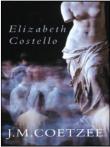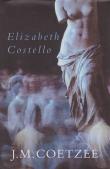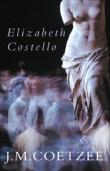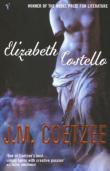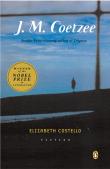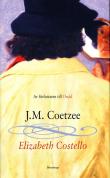AustLit
Latest Issues
AbstractHistoryArchive Description
In Elizabeth Costello: Eight Lessons, the eponymous protagonist is a retired author of international literary acclaim, who now spends her time giving guest lectures and interviews at scholarly events around the world. Old age has loosened, rather than reified, her ethical and literary convictions, and swelled her emotional reserves; rather than provide the staid academic wisdom expected of her, Costello offers provocative, unsettling opinions on issues such as animal rights, literary censorship, and the nature of belief - opinions she may or may not believe in herself. Profoundly aware of itself, Coetzee's novel is about human morality and mortality, but above all, about literature itself and the ethical responsibilities of writers and readers.
Notes
-
Acknowledgements
An earlier version of Lesson 1 appeared under the title 'What is Realism?' in Salmagundi nos. 114-15 (1997).
An earlier version of Lesson 2 appeared as 'The Novel in Africa', Occasional Paper no. 17 of the Townsend Center for the Humanities, University of California at Berkeley, 1999. Cheikh Hamidou Kane is quoted from Phanuel Akubueze Egejuru, Towards African Literary Independence (Greenwood Press, Westport, 1980), by permission of the author. Paul Zumthor is quoted from Introduction à la poésie orale, by permission of Éditions du Seuil.
Lessons 3 and 4 were published, with responses by Peter Singer, Marjorie Garber, Wendy Doniger and Barbara Smuts, as The Lives of Animals (Princeton University Press, 1999).
An earlier version of Lesson 5 appeared as 'Die Menschenwissenschaften in Afrika' / 'The Humanities in Africa' (Siemens Stifung, Munich, 2001).
An earlier version of Lesson 6 appeared in Salmagundi nos. 137-38 (2003).
'Letter of Elizabeth, Lady Chandos' was published by Intermezzo Press, Austin, Texas, in 2002.
Some chapters of this book are revised versions of essays previously published in literary and cultural journals.
-
Listed in The New York Times Book Review's list of Notable Books for 2003.
-
Editions and translations have been updated for Elizabeth Costelle: Eight Lessons by Eilish Copelin as part of a Semester 2, 2013 scholar's internship. The selection and inclusion of these editions and translations was based on their availability through Australian libraries, namely through the search facilities of Libraries Australia and Trove (National Library of Australia).
Given the international popularity of Coetzee's work, however, this record is not yet comprehensive. Editions and translations not widely available in Australia may not have been indexed. Furthermore, due to the enormous breadth of critical material on Coetzee's work, indexing of secondary sources is also not complete.
Publication Details of Only Known VersionEarliest 2 Known Versions of
Other Formats
- Large print.
- Sound recording.
Works about this Work
-
The Costello Project
2023
single work
criticism
— Appears in: The Bloomsbury Handbook to J. M. Coetzee 2023; (p. 169-180) -
A Manual for Writers : Elizabeth Costello
2021
single work
criticism
— Appears in: Reading Like an Australian Writer 2021; -
Literature and Identity Appropriation through Costello : Coetzee’s Dealings with the Migrant’s Crisis
2021
single work
criticism
— Appears in: Transnational Spaces : India and Australia 2021; (p. 133-148)'J.M. Coetzee is best known for winning the Nobel Prize for literature on the basis of writing about his South African homeland. He is also famous for his literary configuring of ethics in relation to human-animal relationships. Coetzee is now an Australian citizen. This chapter provides a reading of the international travels of author, implied author, character and text, with a central interest in the relation between appropriation and negotiations of a transnational identity. Australian woman Elizabeth Costello (lecturing abroad on animal rights) reappears in the regional space of Adelaide, making Elizabeth Costello, Slow Man and subsequent books textual spaces in which Coetzee wrestles with the enigmas of migration, the gaps in history and the ‘masquerade’ that is appropriation of ‘other’ identities. The chapter arises from transnational knowledge transfers, its authors being part of the growth of Australian Studies in India and beyond.'
Source: Abstract.
-
Da Tu Sha Zhi Hou Ru He Xie Shi Yi Li Sha Bai Ke Si Te Luo de Chuang Shang Nei He Yu Biao Zheng Zuo Lun
2021
single work
criticism
— Appears in: Foreign Literatures , no. 3 2021; (p. 113-124, 162) 'Since the publication of Kutcher’s "Elizabeth Costello", the heroine Costello’s sensational remarks comparing human slaughter of animals to the Nazi’s extermination of Jews has caused an uproar. "How to write poems after the Holocaust" is a fulcrum of thinking that cannot be ignored in Coetzee's observation of the post-Auschwitz literary outlet and breakthrough in this work. It has infiltrated his profound examination of the suffering of living beings, the nature of human nature and literary writing. . The two important lectures "Animal Life" and "The Problem of Evil" show Costello's perceptual breakdown and self-reflection in various uncertain and contradictory situations, focusing on the grand narrative of enlightenment rationality, especially the specific history of the Holocaust The extreme horror and absolute evil derived from the context highlight the trauma of post-modern fiction art in the process of shocking human imagination and ethical threshold...' (Publication abstract) -
Molly Bloom and Elizabeth Costello : Coetzee’s Female Characters and the Limits of the Sympathetic Imagination
2019
single work
criticism
— Appears in: Reading Coetzee's Women 2019; (p. 39-53) Examines Coetzee's 'writing back' to James Joyce in Elizabeth Costello.
-
Eventful Event
2003
single work
review
— Appears in: The Advertiser , 6 September 2003; (p. 13)
— Review of Elizabeth Costello : Eight Lessons 2003 single work novel -
An Invitation to Think
2003
single work
review
— Appears in: The Weekend Australian , 6-7 September 2003; (p. 13)
— Review of Elizabeth Costello : Eight Lessons 2003 single work novel -
Beyond Belief
2003
single work
review
— Appears in: The Bulletin , 9 September vol. 121 no. 6389 2003; (p. 76-77)
— Review of Elizabeth Costello : Eight Lessons 2003 single work novel -
Coetzee's Questions
2003
single work
review
— Appears in: The West Australian , 13 September 2003; (p. 14)
— Review of Elizabeth Costello : Eight Lessons 2003 single work novel -
Shortcuts : The Essential Week : Fiction
2003
single work
review
— Appears in: The Weekend Australian , 13-14 September 2003; (p. 10)
— Review of Elizabeth Costello : Eight Lessons 2003 single work novel -
Literary Names Give Award Fresh Life
2004
single work
column
— Appears in: The Australian , 30 April 2004; (p. 15) -
The Tyranny of the Literal
2005
single work
essay
— Appears in: Australian Book Review , April no. 270 2005; (p. 32-38) James Ley examines the act of reading literary novels and the interpretation that must occur within each reader, including understanding the author's use of irony. Although the task may sometimes be challenging, Ley concludes that reading is 'a creative act. Unlike almost everything we are encouraged to consider entertainment, it is an active pursuit. Without this process of interpretation we cannot know ourselves.' -
The Babushka Doll of Narrative
2007
single work
column
— Appears in: The Age , 3 February 2007; (p. 30) -
Tilting on the Axis of Evil: Australian Literature and Moral Relativism
2006
single work
criticism
— Appears in: Explorations in Australian Literature 2006; (p. 1-16) Dennis Haskell discusses depictions of moral relativism in Australian literature. He cites various examples including the characters of Elizabeth Costello (in Elizabeth Costello) and Ellen Roxburgh (in A Fringe of Leaves). -
Shattering the Word-Mirror in Elizabeth Costello : J. M. Coetzee's Deconstructive Experiment
2007
single work
criticism
— Appears in: The Journal of Commonwealth Literature , vol. 42 no. 1 2007; (p. 79-96) The author aims to demonstrate 'how Elizabeth Costello undermines the conventions of mimetic referentiality and blends narrative and essay' (80), offering a Barthean 'writerly text,' 'allowing for an interpretive pluralism that elevates the reader to the rank of co-writer' (81).
Awards
- 2005 longlisted International IMPAC Dublin Literary Award
- 2004 shortlisted Victorian Premier's Literary Awards — Prize for Fiction
- 2004 winner Queensland Premier's Literary Awards — Best Fiction Book
- 2004 shortlisted Miles Franklin Literary Award
- 2004 shortlisted New South Wales Premier's Literary Awards — Christina Stead Prize for Fiction
-
cUnited States of America (USA),cAmericas,
-
Amsterdam,
cNetherlands,cWestern Europe, Europe,
- Africa,

